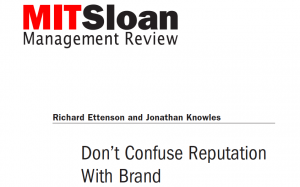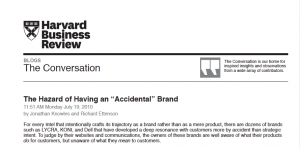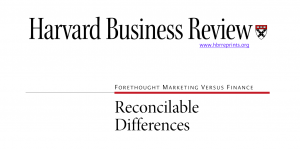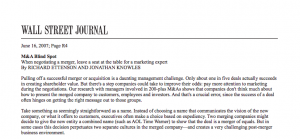Filter by subject
Article

Too many companies in mature markets assume that the only reason to enter emerging countries is to pursue new customers. They fail to perceive the potential for innovation in those countries or to notice that a few visionary multinationals are successfully tapping that potential for much-needed ideas in products and services.
Article

It’s a well-documented fact that merged companies underperform the market, typically by 5 to 10% over the three years following the merger. There’s an infrequent but important exception, though – corporations that adopt a “fusion” of the merging companies’ identities actually outperform the market.
Article

The “reputation imperative” has become more prominent over recent years. We argue that being regarded as a desirable corporate citizen is a necessary but insufficient requirement for business success – because the key driver of cash flow is the sales demand that results having a compelling value proposition to customers (aka a strong brand), not just a stellar reputation.
Article

For every Intel that intentionally crafts its trajectory as a brand rather than as a mere product, there are dozens of brands such as LYCRA, KONI, and Dell that have developed a deep resonance with customers more by accident than strategic intent. A myopic focus on achieving superior functionality has left these companies blind to the broader nature of the value they deliver to customers.
Article

Marketing and Finance have a famously fractious relationship, with each accusing the other of failing to understand how value is created. This tension may seem to be dysfunctional, but when channeled right, it can be highly productive.
Article

Pulling off a successful merger or acquisition is a daunting management challenge as only about one in every five deals actually succeeds in creating shareholder value. But there’s a step companies could take to improve their odds: pay more attention to marketing strategy during the negotiations.